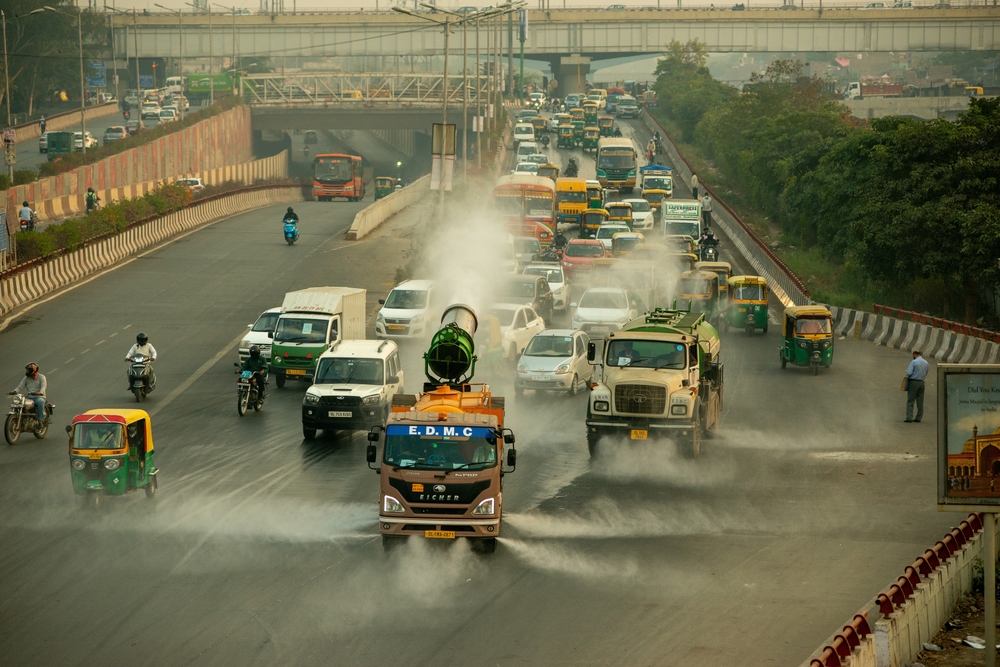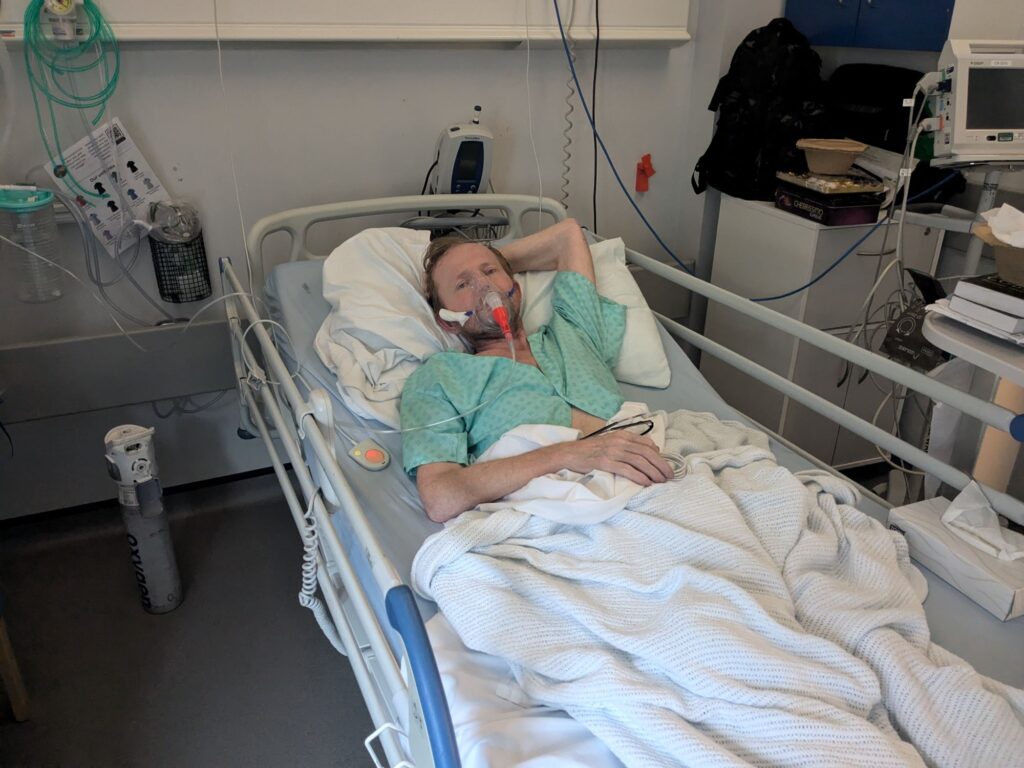CLEAN AIR DAY: Earlier this morning, 100 health professionals and clean air campaigners walked from Great Ormond Street Hospital for Children to Parliament Square to deliver a letter calling for action on air pollution.
The walk was organised by Great Ormond Street Hospital and Global Action Plan – the group behind Clean Air Day – and coincided with the Royal College of Physicians publishing a new report quantifying the impact of air pollution on the UK.
GOSH was the first London hospital to declare a climate and health emergency and in 2023 integrated air pollution data into patient’s medical records to help clinicians advise families on the dangers it may pose.
Mat Shaw, CEO of Great Ormond Street Hospital for Children who is taking part in the walk said: ‘Caring for children and young people means doing all we can to improve the air they breathe. Clean air isn’t a luxury – it’s a fundamental part of a healthy childhood and that’s why we are walking to Parliament today to encourage the Government to make a commitment to ambitious air quality targets.
‘We’re not doing our job as healthcare professionals if we’re not also pushing for the changes we need to see to ensure our patients – and all children and young people – can grow up in an environment that doesn’t cause them harm everyday.’
Also walking is Rosamund Adoo-Kissi-Debrah, who is featured in one of our other Clean Air Day articles today. She said: ‘Air pollution is a public health pandemic and doctors, nurses and health professionals see the devastating effects of breathing dirty air, every single day in their patients. It took years of suffering to prove that air pollution killed my daughter Ella, but we know that there are hundreds of thousands more people in the UK who are suffering the same fate.
‘I want the Government to act, I want them to adopt the WHO air quality guidelines and I want them to prioritise our children’s health, our nation’s health. Healthy children grow up to be healthy adults and if we truly want a healthcare system built on prevention, cleaning up the air we breathe should be the first priority.’
Global Action Plan’s Director of Policy & Campaigns at Global Action Plan, Larissa Lockwood said: ‘Clean air is crucial for good health – so why are we aiming for anything less? Levels of air pollution in urban areas across the UK currently exceed the recommended limits set by the World Health Organization to protect everyone’s health. This Clean Air Day healthcare workers and organisations have sent a clear message to the UK Government that it’s time to bring our air quality targets in line with the overwhelming medical consensus. Doing so will prevent tens of thousands of early deaths and ensure that we can all live healthier lives.’
The letter is addressed to the Prime Minister, along with a number of his colleagues. At the time of writing it has been signed by 440 professionals occupying a wide range of roles, from school nurses to the Chair of the Healthy Air Coalition, from respiratory paediatricians to the Chair of the UK Health Alliance on Climate Change.
The letter reads:
We are writing as representatives from across the health sector to urge you to set the right level of ambition for action on air pollution and develop a robust pathway to deliver World Health Organization air quality guidelines for our health in the UK.
We need clean air for good health. It is estimated that between 29,000 and 43,000 deaths a year in the UK are attributable to air pollution. Cleaner air will prevent avoidable deaths and reduce the significant health harms of toxic air such as asthma, cardiovascular disease, low birth weight in babies, dementia and brain health. We know the harms of air pollution fall on our most deprived communities, worsening health inequalities.
Unless air quality is improved, the health and social care cost of air pollution in England could reach £5.3 billion by 2035.
We call for your support on clean air policy, public awareness and supporting the NHS to become a role model in cutting emissions, this includes:
1. Clean Air Policy
We welcome the UK Government’s recent commitment to review air quality targets. Air pollution is the largest environmental threat to human health worldwide; while there are no safe levels of air pollution, adopting and adhering to the World Health Organization guidelines could save millions of lives worldwide. We call on:
The Secretary of State for Environment, Food and Rural Affairs to ensure that revised air quality targets are included in the Environmental Improvement Plan and Air Quality Strategy. These targets should align with the World Health Organization’s guidelines to protect public health and be underpinned by a robust pathway for delivery.
The Secretary of State for Health and Social Care to publicly commit to working across government to deliver action on air pollution as part of its health mission and the sickness to prevention shift.
2. Awareness
Everyone should be aware of the health harms of air pollution and how to protect their health. Yet efforts to raise public awareness of the impact of air pollution and the need for policies to improve air quality are currently being delivered by local authorities and NGOS on shoestring budgets. We call on:
The Department of Health and Social Care to lead a public engagement campaign on air quality, highlighting the impact of air pollution on health and providing guidance on reducing exposure and contributions to air pollution.
All health institutions that are responsible for medical practices and healthcare professional training should provide comprehensive air pollution education across undergraduate and postgraduate levels, with ongoing mandatory staff training, with a specific focus on respiratory, heart, brain, maternal and child health, and primary care.
3. Role Modelling
As the UK’s largest employer, the NHS is a significant contributor to air pollution, while simultaneously caring for patients who are at risk from exposure to air pollution. In transport alone, the NHS is responsible for 9.5 billion miles of road travel per year in England. The NHS can be a role model in reducing emissions across a range of areas. We call for:
HM Treasury to provide funding for the Department of Health and Social Care to lead the implementation of Clean Air Frameworks in England’s 42 Integrated Care Systems (ICSs), working in partnership with local authorities and guided by the UKHSA.
The health community sees first hand the health impacts of poor air quality. Health professionals cannot treat the causes of toxic air that make our patients sick. The need for bold action to improve air quality is urgent. It will improve health inequalities and reduce health harms. We look forward to seeing WHO-aligned air quality targets in place and working with you to achieve them.


















Leave a Reply